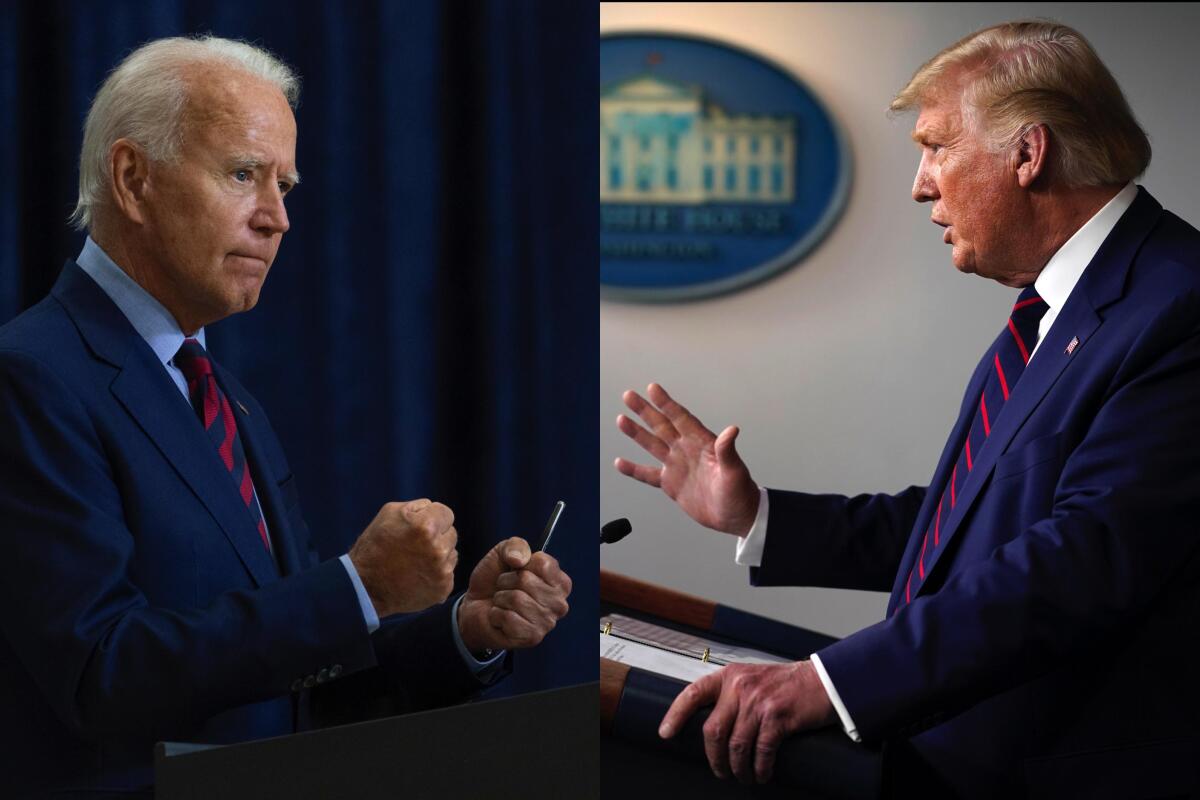Letters to the Editor: Trump and Biden aren’t the real problem with the two-party system

- Share via
To the editor: Jonah Goldberg finds fault with both parties due to their favored presidential candidates for an election 18 months from now — while making no mention of what has been and continues to be the most significant difference between the parties.
What “isn’t working” is that one party — the GOP — has invested in all things election denial, including efforts to overturn the results by force and deception, and continues to pass legislation to reduce the convenience of voting. And there’s no evidence of a willingness to change their behavior going forward. Given that reality, how could any two-party system work?
Ted Rosenblatt, Pacific Palisades
..
To the editor: Goldberg makes excellent points, but he misses one foundational reason as to why we still have a two-party system: the electoral college. The archaic 18th century mechanism we still use to elect our presidents reinforces the two-party system. The winning candidate must achieve a simple majority of electoral votes, and that current number is 270. Failure to reach this magic number sends the election to the House of Representatives, where each of the 50 state delegations receives one vote.
It appears that the American public is also tired of the two-party system. Gallup polling reported this year found that more Americans identify as “independents” than as either Republicans or Democrats. If only we had an electoral system that would allow a robust third-party candidate to get elected. This won’t happen until we abolish the electoral college.
Alan Moghul, Cathedral City
The author is executive director and co-founder of the National Vote advocacy organization.
..
To the editor: It is an outrage that our country is heading toward a presidential contest in which more than half of voters don’t want either of the top contenders to run. The nation would greatly benefit from electoral changes.
Rampant voter suppression and disruption of voter confidence in the electoral process must end. Enabling ranked-choice voting would allow voters to express their true preferences and ensure that the winner is the candidate with the most public support. And we could limit the influence of massive infusions of money by requiring TV and radio to follow paid political ads with public service announcements that provide candidates’ actual policy positions; trusted neutral bodies could supply questions the candidates are required to answer.
Finally, we must insist that the popular vote, not the archaic electoral college, determines who becomes president.
Grace Bertalot, Anaheim







